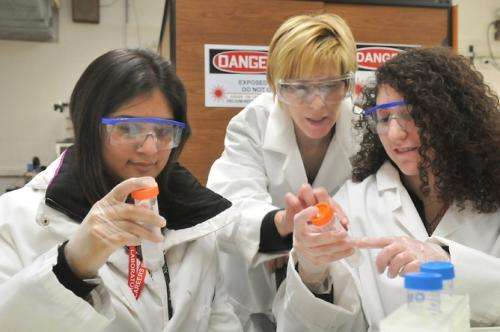Call to arms: Racism and sexual harassment is still rife in science

Martin Luther King said, "On some positions, Cowardice asks the question, 'Is it safe?' Expediency asks the question, 'Is it politic?' And Vanity comes along and asks the question, 'Is it popular?' But Conscience asks the question, 'Is it right?'"
Even though Conscience should win, in real life things are complicated. In the last two weeks I have been wrestling with my conscience over a number of events. These events have shown how rife sexism, racism and sexual harassment against women in science still is. As it happens, all these events involved a small community of professional science communicators, but highlighted a deeper problem in science.
The first worrisome event was a conversation on Twitter between two broadcasters: Sue Nelson and Dara O' Briain. It began on the pages of the Daily Telegraph. In an article, Nelson expressed her concern that most science shows on British TV can only be described as "a laddish, macho presenting culture".
After a "bruising and disappointing" exchange with O'Briain on Twitter about the article, Nelson responded to him on her blog:
So if you believe that these particular "lads' science" formats aren't overused and male-dominated or that, when it comes to appearance, women are treated exactly the same as men on TV, that's fine by me. Just don't expect me, or everyone else, to agree with you. Worst of all, don't shout down or belittle others who think otherwise. Our voices should be heard and listened to.
With barely little time for the dust to settle, came a much more deeply disturbing encounter last weekend involving Danielle Lee, a blogger for Scientific American. Lee is a female postdoctoral scientist who describes herself as using "hip hop culture to share science with general audiences, particularly under-served groups". Lee use her race as a frame for her science communication activities and has received many honours for her writing. On being commissioned to blog by Ofek, an editor of Biology-online, a publication that had some sort of partnership with Scientific American, Lee asked to be paid. The response from the editor was: "[Why not?] Because we don't pay for blog entries? Are you an urban scientist or an urban whore?"
There followed a lesson on how a major publisher should not respond when they have made a mistake. First Scientific American took down Lee's blog post that revealed Ofek's remarks. Then they allowed the managing editor to write something in Scientific American's defence. And soon after their blog editor Bora Zivkovic explained that the magazine would have to be speak to lawyers over the weekend before they could make any further comment.
No one could have expected the repercussions of this statement. In refreshing solidarity for Lee another writer and playwright Monica Byrne outraged by Zivkovic's response "outed" him as the man that sexually harassed her last year. Remarkable and very brave. This was followed by revelations about Zivkovic's acts by two other writers Hannah Waters and Kathleen Raven, both of whom suffered worse.
These stories broke a dam. Women began to tweet about their experiences of men in the world of science. Shocking, sad and moving stories. In the world of science communications Zivkovic was considered a leader who could make or break careers (and loved to hug women). The awfulness of this situation is made worse in that, according to journalist Martin Robbins, many people knew but kept quiet.
The community of science writers showed solidarity to the horrid events of the week Hashtags #standingwithDNlee and #ripplesofdoubt stand as a testament. But it brought out a horrible side of professional life, which is rarely talked about. The first step has been Zivkovic's resignation, which Scientific American has accepted. This tightly-knit community will need to take more serious steps to minimise such behaviour. And others would do well to learn from that.
This week as a chair at an all women panel at an event in City University London, we celebrated the achievements of Ada Lovelace that will encourage women in science. We all took a moment to talk about how far we women had come. But I can't help wonder how long it will take for a handful of women to minimise sexist and racist behaviour. Until then we have to rely on those who pass the test of Martin Luther King's words:
The ultimate measure of a person is not where they stand in moments of convenience, but where they stand in moments of challenge, moments of great crisis and controversy.
Source: The Conversation
This story is published courtesy of The Conversation (under Creative Commons-Attribution/No derivatives).
![]()

















